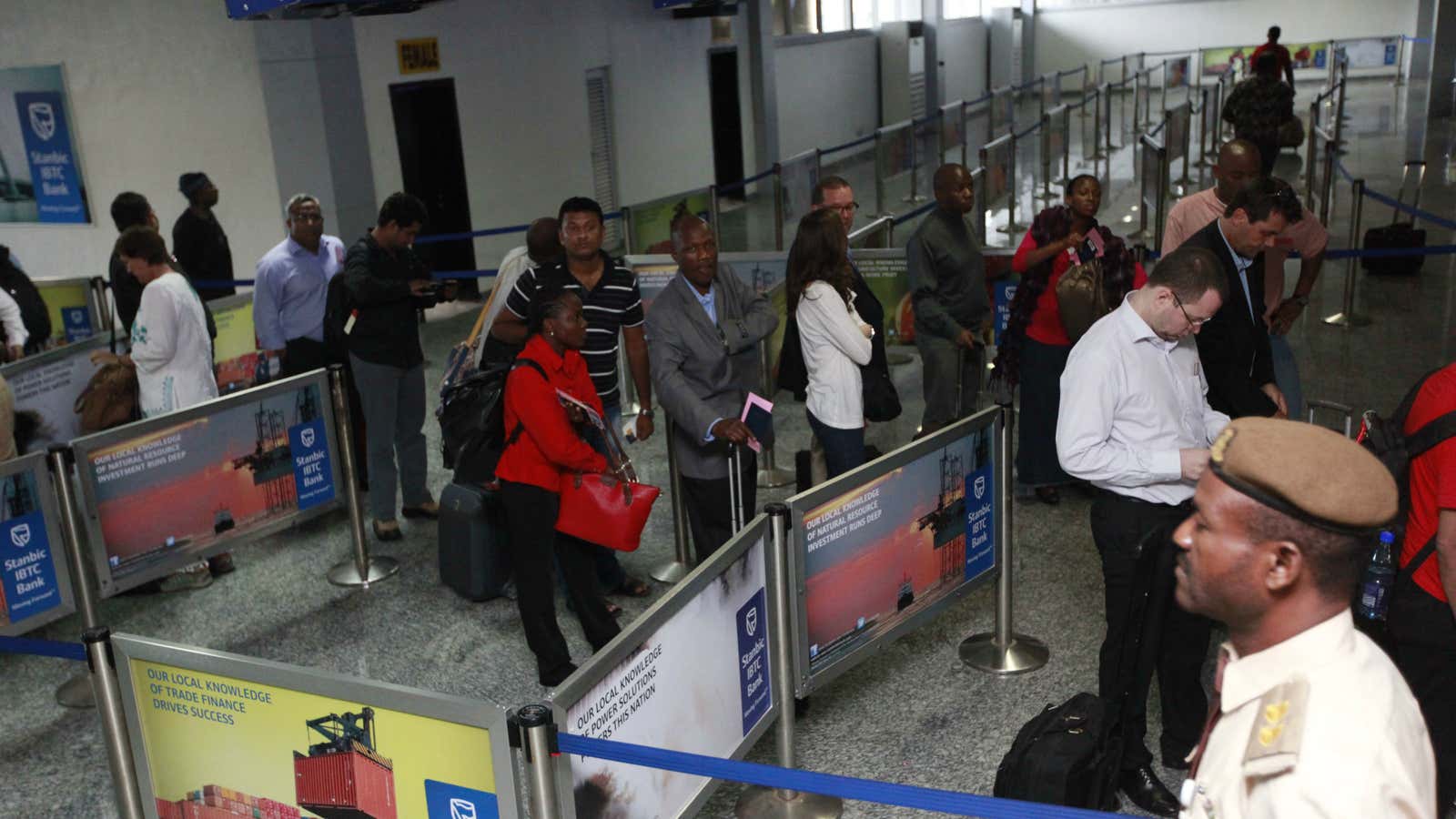It’s taken just a day for the Nigerian government to respond to the Trump administration’s latest visa clampdown measure on Nigerians.
It has reduced visa fees for Americans traveling to Nigeria from $180 to $150 in response to the US embassy’s introduction of a “reciprocity fee” for Nigerians. The US embassy claims the new reciprocity fee, ranging from $80 to $303 and only to be paid for approved visas, has been introduced to “eliminate that cost difference” between visa application fees for both countries.
The move was in line with a Trump executive order in 2017 for the US secretary of State to, among other things, adjust fee schedules “to match the treatment of United States nationals” by other countries. The US embassy claimed it has been in talks with Nigerian authorities for 18 months to align visa fees.
For its part, Nigeria’s government says the decision to lower visa fees for American applicants was taken months ago but was not implemented given the transition in government. (Nigeria’s president Buhari only inaugurated a new cabinet last week after winning reelection for a second term in February).
It’s unclear if the new visa fee reduction for American applicants to Nigeria will also see the US Embassy revise its reciprocity fee structure for Nigerians.
Some international business people and tourists from countries including the United States have long complained about the high expense of Nigerian visas and the difficulty of obtaining them. The Buhari government has targeted improving this with programs including visa-on-arrival for business people and potential investors. Yet, Nigerians also face challenges with the US visa application process, which is renown for its intensive paperwork (even for short stay visas) and involves daunting consular interview sessions that often end in vague reasons for application rejections.
The quick reaction from Nigerian authorities is a change of tack from earlier measures by the Trump administration to clamp on Nigerian visa applications. In May, the US suspended a visa waiver program for Nigerian applicants and has reportedly considered issuing visas for shorter validity periods in response to the high rates of Nigerian nationals overstaying visas.
Sign up to the Quartz Africa Weekly Brief here for news and analysis on African business, tech and innovation in your inbox
